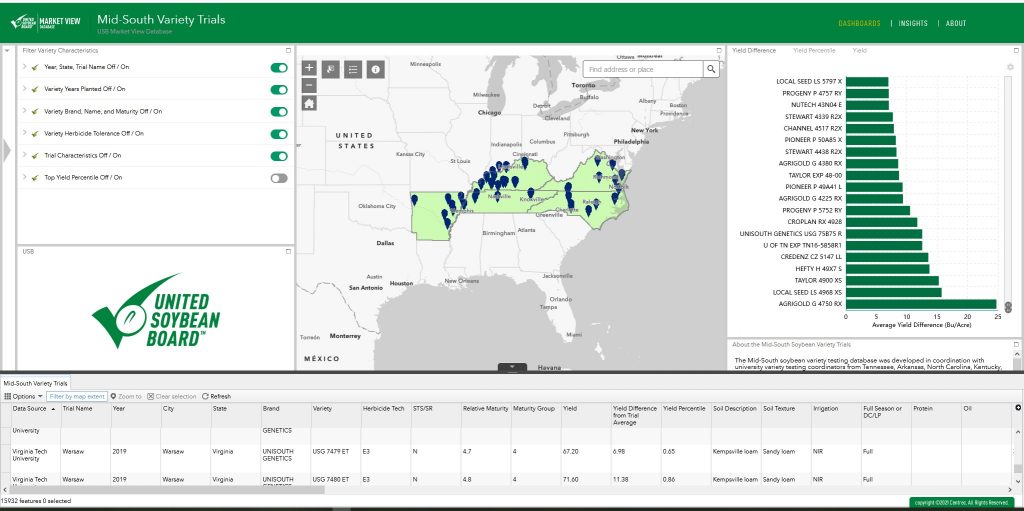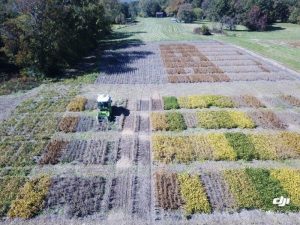David Holshouser, Virginia Tech Extension Soybean Agronomist & Virginia Sykes, University of Tennessee Extension Variety Testing & Agroecology
Which soybean variety is best suited to my region? State variety testing programs provide critical research to help answer that question by evaluating hundreds of soybean varieties every year across multiple locations within a state. But what if we think beyond the bounds of our state borders when it comes to variety evaluation?
While a single state alone provides valuable data, our growing regions often cross state lines. A location in southeastern Virginia may share more similarities to sites in eastern North Carolina than it does to the Northern Piedmont of Virginia. Furthermore, by combining variety testing data across multiple states, we can create a more robust dataset that allows us to better predict which varieties are best suited to specific regions and growing conditions.
Pulling and combining data from select locations within multiple state variety testing programs can be a daunting task. Over the past year, a team of variety testing coordinators from Tennessee, Arkansas, Kentucky, North Carolina, and Virginia have been working to make that process a lot easier. Through funding from the United Soybean Board and in collaboration with Centrec Consulting Group, LLC, we created a tool that will allow users of variety test data to combine and visualize soybean variety testing data across multiple states in the Mid-South. This new tool is available at https://marketviewdb.centrec.com/?bi=MidSouthVarietyTrials.

In addition to choosing locations, another key component of this database is the ability to filter the results to include only the relative maturities, brands, and herbicide tolerances that you want. It can also let you chose whether to include irrigated and/or non-irrigated, or full-season and/or double-crop sites. You can also chose the soil textures that you are interested in.
I won’t go into the details of how to use the site in this blog. But, try it out. Contact me with questions or comments.
The database currently contains 2018 – 2020 data but will be updated as 2021 soybean variety trial data becomes available. We hope that you find this tool useful. We would value your feedback/suggestions as we continue to refine this product to better meet stakeholder needs. A brief survey can be found at https://utk.co1.qualtrics.com/jfe/form/SV_6u5lHEwEOXnXODA.
The database described in this article was developed with support from the United Soybean Board.

